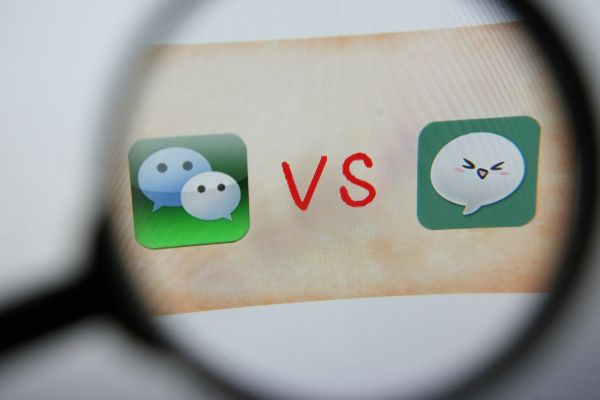


By Yang Yang (楊陽)
Issue 634, August 26, 2013
Corporation, page 32
Translated by Shuqi Luo
Original article: [Chinese]
YiChat, a mobile instant messaging service jointly developed by China Telecom and NetEase, is going head-to-head with Tencent’s market leading WeChat.
While the two services are similar, YiChat is trying to differentiate itself from its biggest competitor, which already has a commanding 300 million-plus user base.
The biggest difference between the two is in privacy protection. For instance, one needs to send a request and get permission from another user before they can become WeChat friends. On YiChat, however, you can be someone’s friend as long as you have their mobile phone number in your contacts.
YiChat Product Manager Zhang Xing (章行) says that this doesn’t violate privacy protection, since people in your contact list can already reach you through calls and text messages. It’s simply loosened control compared to WeChat’s overprotection of privacy, he says.
YiChat has also developed several technical differentiations. For instance, WeChat compresses voice messages, while YiChat aims to improve their clarity by 3.5 times. And WeChat’s chat groups only allow up to 40 members, while YiChat allows 100.
Marketing
China Telecom and NetEase are marketing the new software together. As the major shareholder with a 73 percent stake in YiChat, China Telecom has incorporated the penetration rate of the software into the Key Performance Indicator (KPI) of its branches.
Meanwhile, NetEase is leveraging its highly popular web portal (which gets hundreds of millions of page views per month), e-mail and online games. It’s begun sending free rechargeable cards for its online games and other perks to YiChat users.
Analysis
According to internet analyst Hong Bo (洪波), YiChat is facing an uphill battle. He says Google’s similar G-talk service has already set a discouraging precedent by failing to meet expectations.
WeChat had a huge advantage in its parent company Tencent, which also owns the highly-popular QQ messaging software. QQ has nearly 800 million registered user accounts and WeChat was able to gain tens of millions of users simply by leveraging that user base. If it wants to build a comparable user-base, YiChat may have to cooperate with other instant messaging developers like Momo (陌陌) and Miliao (米聊).
Even if it doesn’t overtake WeChat, YiChat could find its own niche. NetEase Chairman Ding Lei (丁磊) says that YiChat’s objective isn’t to replace WeChat, but simply to share the market.
It’s off to a decent start. Within three days of its launch, YiChat has already been downloaded several million times. Zhang Xing, the product manager, said, “This performance is way beyond our expectations.”